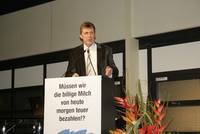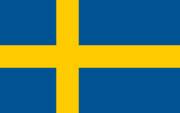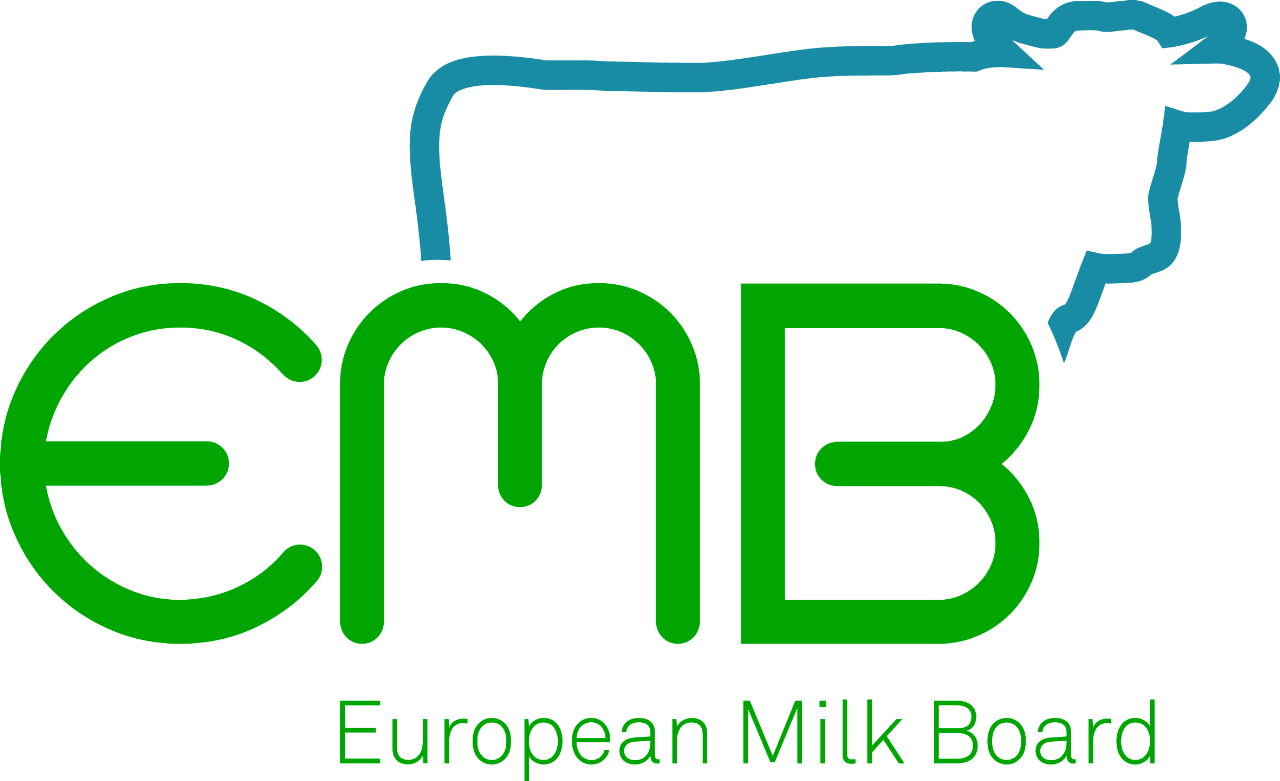EMB Newsletter June 2012
Newsletter as PDF
Contact
European Milk Board
Bahnhofstr. 31
D-59065 Hamm
Phone: 0049/2381/4360495
Fax: 0049/2381/4361153
E-Mail: office@europeanmilkboard.org
Website: http://www.europeanmilkboard.org
Newsletter as PDF
Contact
EMB - European Milk Board asbl
Rue de la Loi 155
B-1040 Bruxelles
Phone: +32 - 2808 - 1935
Fax: +32 - 2808 - 8265
Dear Dairy Farmers and Interested Parties,
There is growing concern amongst Irish dairy farmers regarding the direction of milk price in 2012. The majority of milk processors cut milk price by 3 cents per litre for April and are now strongly signalling further reductions in the coming months. With milk price now at 31 cents per litre and with rapidly escalating costs, a very serious situation could arise unless further milk price reductions are averted. We are carefully monitoring the situation right across Europe and we are only too aware that this situation is being mirrored in many of the Member States; unfavourable weather has driven input costs upwards and international dairy markets have been under pressure in recent months.
ICMSA, the Irish member organisation of the European Milk Board (EMB), is opposing the milk price reductions imposed by the Irish processors and has met with nearly all the major processors in the last two months. Our opposition here is not ‘knee-jerk’. It is quite clear that while markets have recently weakened, Irish processors made very substantial profits in 2011 and, given the Co-op ethos, it is our firm opinion - which we have repeatedly expressed to the processors - that those profits and reserves must now be deployed to support milk price. How exactly for this reason producer organisations in different European countries engage in milk pooling to improve their members’ lot is also a focus of this issue of the EMB Newsletter.
Milk price will be the key issue over the coming months in Ireland and Europe but the current situation clearly highlights – yet again - the need for a more defined policy at EU level to deal with volatility. And it is precisely the realisation that these problems can only be solved at EU level that has led our Association to make the critical commitment to the EMB. The EMB brings to the question is a dynamism and purely dairy focus that was badly needed and was, perhaps, not completely appreciated by all the representative groups already in situ.
I am a farmer from the west coast of Ireland and on first glance it must seem like I would not have much in common with my counterpart in Holland or Bavaria. But that impression is profoundly mistaken; there is much more in common than there is difference. We are the primary producers of a substance on which an enormous and very valuable international sector actually rests and yet we are – or, at least, we seem to be – the least consideration in terms of deciding upon a policy that will deliver us an income proportionate to the work, skill and investment we make in producing the milk on which everything else rests.
I know this is the case. My counterparts in Holland and Bavaria and everywhere else in Europe know that this is the case. And together in EMB we are going to fight to change a system that puts the people who produce the milk last in line.
John Comer (Member of the EMB-Board and President of ICMSA)
We have to take charge now!
In the interview below the President of the MEG Milch Board Peter Guhl explains the new strategy of his producer union as a reaction to the EU Milk Package, which came into effect recently.
BESTE: Mr Guhl, what consequences did the MEG Milch Board as the biggest German milk producer union draw from the outcome of the negotiations on the Milk Package in Brussels?
GUHL: “We steadfastly championed our interests in the negotiations on the Milk Package, and together with the EMB were able to contribute many of our ideas as well. The results of the Milk Package make us angry, though. In our view it is now time to roll up our sleeves! The dairy farmers now have to take charge of the matter – and by that I mean the milk.”
France MilkBoard: Take the Opportunities
As milk producers and companies in France are now obliged by law to conclude contracts, the expansion of a producer organisation like France MilkBoard is even more important.
France MilkBoard’s primary objective is to become an independent, sectoral organisation: independent not only of the dairies but also of the biggest farmers’ union in France, FNSEA, whose priority is quite obviously no longer defending the producers’ interests; sectoral to prevent a repetition of such a devastating situation as Switzerland is currently experiencing and the competition between companies inevitably being at the expense of the producers.
Co-operatives: Members in the Netherlands worse off than in Germany
A short time ago solicitor Oliver Schniewind drew up an expert opinion commissioned by the German Dairy Farmers Association (BDM), studying the legal position of individual milk producers in relation to “their” co-operative. The Dutch Dairymen Board (DDB) has now submitted this expert opinion to Dutch lawyers to have them assess whether the legal position of milk producers in the Netherlands is comparable, and to what conclusions the expert opinion would have come based on Dutch law.
Although Dutch legislation is similar to German law in most areas, there are differences which make the legal position of members of Dutch co-operatives worse than that of their German colleagues.
Agricultural Social Insurance: Differences throughout Europe
Social security for farmers in Europe operates differently from country to country, varying a great deal depending on the nation states’ traditions and particular features. For instance, it varies mainly with regard to the insured group of persons, the organisation, the range of benefits and the funding. France, Finland, Austria, Germany, Greece and Poland are the only countries that have their own social insurance systems for agriculture.
In each country with its own agricultural social insurance system, this system usually operates in parallel with a general social security system and the insurance systems of other professional groups. Different life risks are covered in different countries. In Germany, Austria, France and Poland the agricultural social insurance comprises accident insurance, a pension scheme and health insurance, whereas in Finland it consists solely of accident and pension insurance, and in Greece only pension and health insurance.
Swedish Milk Producers take to the streets
The Swedish member organisation of the EMB Sveriges Mjölkbönder organised an event for consumers and milk producers in Stockholm on the occasion of the World Milk Day on 1 June 2012. Both milk producers from Sweden and other European countries had come to Stockholm to support the day. The aim of the day was to highlight the importance of the Swedish milk production and to address the serious situation with decreasing amount of milk producers in the country.
The Umbrella Association of Swiss Milk Producers sticks to its Exit from the Inter-Branch Organisation.
The main feature of the current situation in the Swiss dairy market is unprecedented record production levels. Milk prices are plummeting, and the only way to dispose of the increased volume of milk is on the world market in the form of butter and milk powder. In May alone the prices paid to farmers fell by between 2.5 and 4 centimes.
The inter-branch organisation (BOM) has failed to solve the problems in the Swiss dairy market since it was established three years ago. In the end this was the reason why the umbrella organisation of the Swiss Milk Producers (SMP) left the BOM in autumn 2011. This means the BOM has lost its status as a inter-branch organisation, as its only remaining members are the milk trade organisations, the processors and the retailers.
Co-operatives: a System for the Future?
An international conference on “Co-operative Answers to Global Challenges” was held at Humboldt University in Berlin from 21 to 23 March 2012. The aim was to discuss forward-looking approaches to the creation of a better economic system.
A total of 239 conference-goers from 56 nations came to this event in Berlin as part of the current International Year of Co-operatives. A key conclusion of the presentations and discussion – however only valid in developing countries - was that co-operatives achieve up to 40 per cent higher prices in the market for their members than private companies do. So they were seen as a democratic answer to an increasingly privatised economy.
EMB Calendar
Please find below some of the most important events in June 2012:
4./5.6.: Workshop Food and Agriculture of the ATM network
12.6.: Meeting of the EMB-Board in Brussels
13.6.: Meeting with ECVC and FFE in Brussels
14.6.: Meeting with a milk producer organisation in Brussels
25.6.: Advisory group on CAP regarding international aspects
26./27.6.: Alliance meeting of the ATM network in Brussels
Full Texts
We have to take charge now!

In the interview below the President of the MEG Milch Board Peter Guhl explains the new strategy of his producer union as a reaction to the EU Milk Package, which came into effect recently.
BESTE: Mr Guhl, what consequences did the MEG Milch Board as the biggest German milk producer union draw from the outcome of the negotiations on the Milk Package in Brussels?
GUHL: “We steadfastly championed our interests in the negotiations on the Milk Package, and together with the EMB were able to contribute many of our ideas as well. The results of the Milk Package make us angry, though. In our view it is now time to roll up our sleeves! The dairy farmers now have to take charge of the matter – and by that I mean the milk.”
BESTE: Up until now the MEG Milch Board has only united producers. Does the change in strategy mean that you now intend to collect and sell the milk yourselves?
GUHL: “Well, we have no plans at present to acquire a fleet of milk trucks. Our idea is to take over negotiations, drafting and concluding contracts almost like service providers for the dairy farmers.”
BESTE: So does that mean that there will be a market and price negotations upstream of the dairies?
GUHL: “Yes, precisely. The “trade” level has to be inserted between the producer level and the processor level. And that requires the producer level being strong enough to be an equal negotiating partner. It is always easier to put individual producers under pressure. If a producers’ union signs the contracts instead of the individual producer – with co-operative or private processors – it is no longer possible for the processors’ cost-cutting to be achieved at the producers’ expense.”
BESTE: With this new strategy, to what extent can the production costs be included in the pricing of the milk?
GUHL: “One of the duties of the MEG Milch Board under its Constitution is to calculate a base price that takes the full costs into consideration and which we can use in the negotiations.”
BESTE: Mr Guhl, in your opinion there does not necessarily have to be a correlation between milk delivery and capital invested. How can they be separated as long as there is the obligation to supply?
GUHL: “Some 2/3 of the German milk producers are members of dairies organised as co-operatives. What this means is on the one hand the producers providing the dairy with equity capital by subscribing to shares, and on the other hand being allowed to supply solely this company with all their milk for processing under the obligation to supply stipulated in the Constitution. The obligation to supply has to go. It has nothing to do with free competition and undermines the strengthening of the producers by pooling that was announced – by the Milk package, too.”
BESTE: And how exactly is that pooling to take shape?
GUHL: “Pooling raw milk is a matter for the out-and-out producer organisations. It is vital that all organisations decide on at least a federal state level (e.g. Bavaria MEG in Germany) to co-ordinate all market decisions and market movements. Not one litre of milk goes to the dairy industry if there are no concrete terms of contract. Then, following the example of Bavaria MEG, nationwide marketing structures will have to be put in place to stop the producer unions being played off against each other.”
BESTE: Given the limits on pooling prescribed by the Milk Package, how would such a nationwide pooling take shape? Would there then be simply three or four Milch Boards?
GUHL: “In theory, yes. The work of the federal state MEGs would have to be combined on a national level. Ideally this would be channeled through MEG Milch-Board Deutschland w. V. However, we will have to assume objections under cartel law to a single nationwide organisation. The Germany MEG ratifies the federal state MEGs’ contracts, concludes any direct supply contracts with retailers, draws up market analyses etc. It would also be a liaison office for a European inter-branch organisation, working with a monitoring agency, milk control board and market control board. But we have to realise that this will not be a structure that is ideal from the outset. It will have to be set up step by step. Nor are matters of cartel law to be regarded as a stumbling block from the word go. It is never too late to start something new!”
The interview was conducted by Dr. Andrea Beste (MEG Milch Board)






